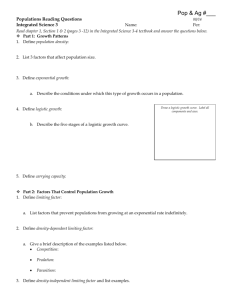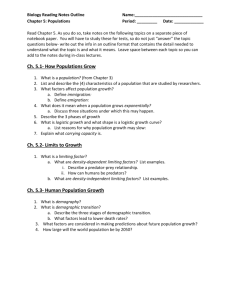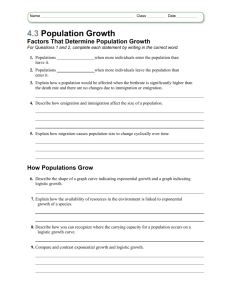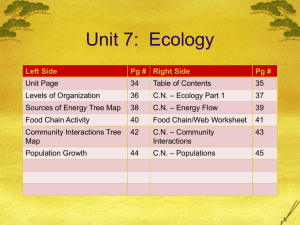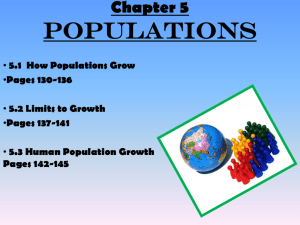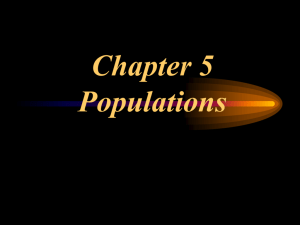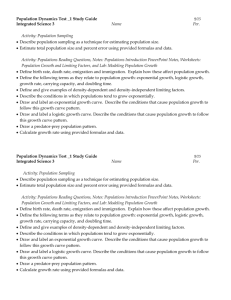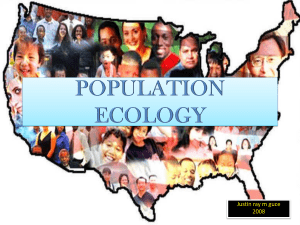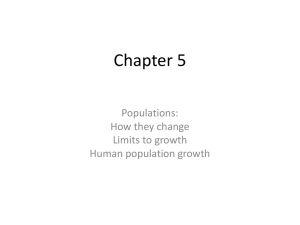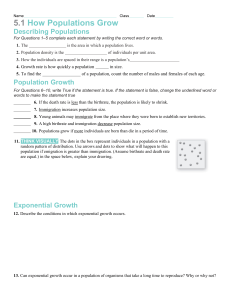Biology CH 5-1 & CH 5-2 Limits on Population Growth Under
advertisement
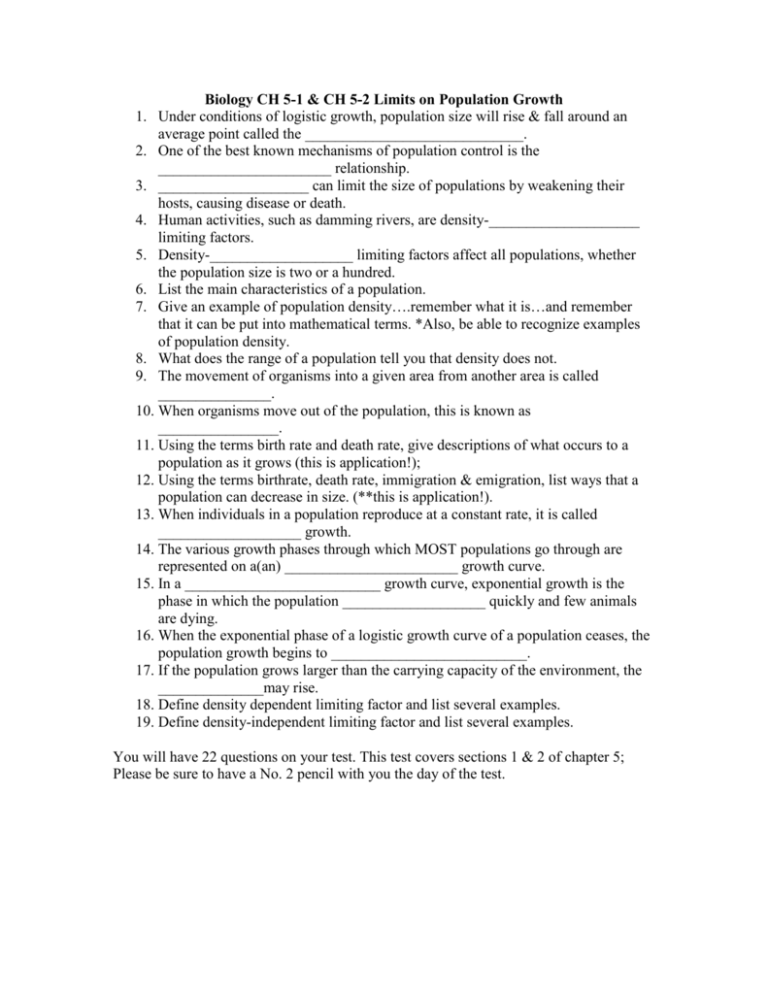
Biology CH 5-1 & CH 5-2 Limits on Population Growth 1. Under conditions of logistic growth, population size will rise & fall around an average point called the _____________________________. 2. One of the best known mechanisms of population control is the _______________________ relationship. 3. ____________________ can limit the size of populations by weakening their hosts, causing disease or death. 4. Human activities, such as damming rivers, are density-____________________ limiting factors. 5. Density-___________________ limiting factors affect all populations, whether the population size is two or a hundred. 6. List the main characteristics of a population. 7. Give an example of population density….remember what it is…and remember that it can be put into mathematical terms. *Also, be able to recognize examples of population density. 8. What does the range of a population tell you that density does not. 9. The movement of organisms into a given area from another area is called _______________. 10. When organisms move out of the population, this is known as ________________. 11. Using the terms birth rate and death rate, give descriptions of what occurs to a population as it grows (this is application!); 12. Using the terms birthrate, death rate, immigration & emigration, list ways that a population can decrease in size. (**this is application!). 13. When individuals in a population reproduce at a constant rate, it is called ___________________ growth. 14. The various growth phases through which MOST populations go through are represented on a(an) _______________________ growth curve. 15. In a __________________________ growth curve, exponential growth is the phase in which the population ___________________ quickly and few animals are dying. 16. When the exponential phase of a logistic growth curve of a population ceases, the population growth begins to __________________________. 17. If the population grows larger than the carrying capacity of the environment, the ______________may rise. 18. Define density dependent limiting factor and list several examples. 19. Define density-independent limiting factor and list several examples. You will have 22 questions on your test. This test covers sections 1 & 2 of chapter 5; Please be sure to have a No. 2 pencil with you the day of the test.
